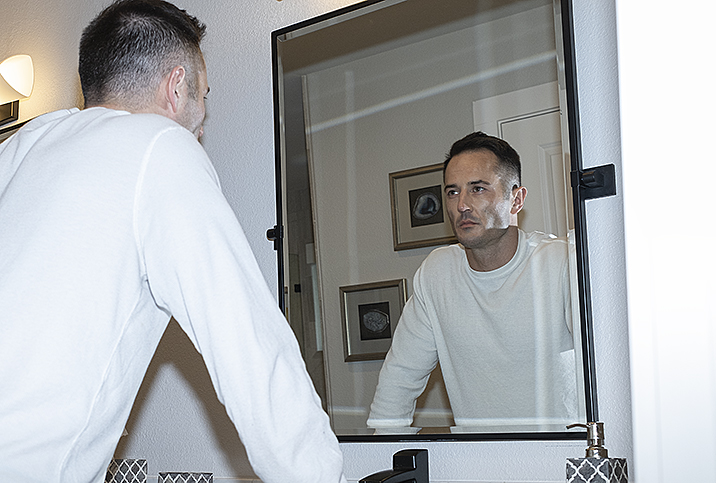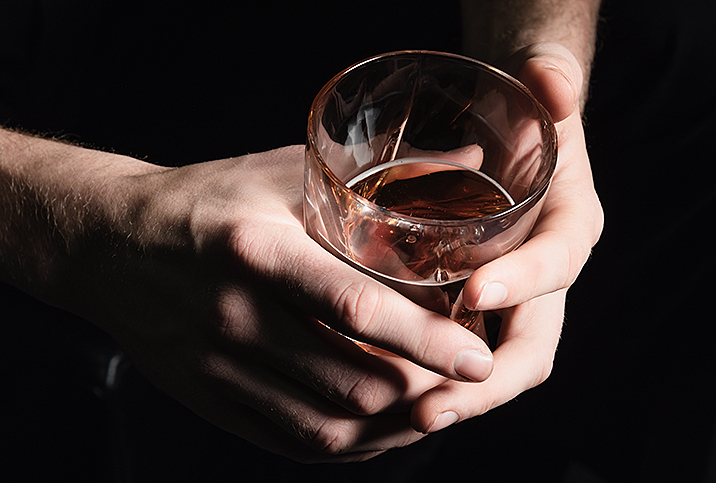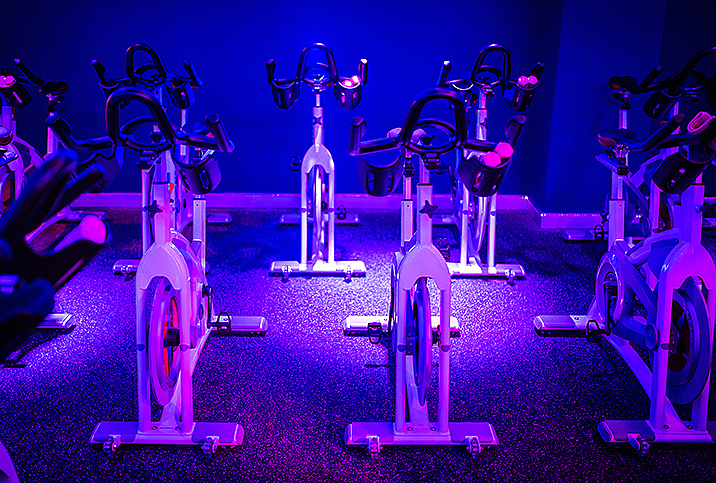Erectile Dysfunction Doesn't Care How Old You Are

Sure, erectile dysfunction (ED), or the inability to get and maintain an erection for sex, is commonly associated with aging. But the reality is that men in their 20s and 30s can also have ED. A study in the Journal of Sexual Medicine found that 26 percent of men younger than 40 experience ED, with nearly half of these guys noting a severe case, compared with 40 percent of older ED sufferers reporting severe symptoms.
ED affects 8 percent of men in their 20s and 11 percent of men in their 30s, according to research in Translational Andrology and Urology, proving that ED is a young man's condition, too. The researchers found there is an increasing number of men under age 40 who are seeing a doctor for ED.
It's normal for healthy young men to occasionally have trouble getting an erection due to factors such as performance anxiety during sex or drinking too much alcohol. Typically, when a young man has ED due to physical causes, they have morning erections less often and the erections they have while masturbating are not as firm. Also, this isn't just a problem for the bedroom: ED is often the only outward symptom of heart problems in younger men.
Potential physical and psychological reasons could be behind erectile dysfunction in young men. Besides these potential roadblocks, the process of achieving an erection is a dance of hormones, blood supply, nerve function and other factors that can cause this bodily reaction to fly out of whack. Below are some of the common physical and psychological contributors to ED in young men.
Giddy urology and sex health experts address the different types of erectile dysfunction in the ED Guide video series. Click here to watch the video.
Physical causes
It's easy to think that young men should be in good physical shape and that their body shouldn't be suffering from the issues that can lead to ED, but that's not the case. Any of the following can lead to erectile problems:
- High blood pressure. Young men with long-term high blood pressure may have a higher risk of developing ED because of the damage it does to blood vessels. High blood pressure makes it difficult for blood to flow into the tissue of the penis.
- Obesity. Obesity can lead to heart disease and diabetes, which are risk factors for ED. Men who are morbidly obese can even have hormonal changes due to excess body fat.
- Hormonal disorders. Low testosterone (low-T) may cause ED. Another potential cause is increased production of prolactin, a hormone produced by the pituitary gland. Abnormally high or low thyroid hormone levels can also lead to ED.
- Diabetes. This condition can damage blood vessels and impact blood flow, including supplying blood to the penis. Diabetes may also impact the nerves in the penis, making it more difficult for stimulation to result in an erection.
Giddy urologist Dr. Edwin Morales explains the connection between diabetes and erectile dysfunction in the ED Guide video series. Click here to watch the video.
Psychological causes
The human mind is an amazing entity, but all of its complexity leaves room for mental issues to arise. Some of the most common ones interact negatively with other bodily systems and can lead to problems getting and/or maintaining an erection:
- Depression. The sadness and hopelessness associated with depression may cause ED among young men, along with a lowered libido due to a lack of interest in pleasurable activities such as sex. Many antidepressants can cause ED, so speak with your doctor about which medication is right for you to manage your mental health issues without compounding ED.
- Stress and anxiety. Stress and anxiety can interrupt how the brain sends messages to the penis. These feelings fill your body with "fight or flight" hormones, which prevent typical blood flow to the penis, resulting in ED. This can often lead to a vicious cycle of behavior, such as more frequent consumption of alcohol, which can also compound already existing ED.
- Guilt, shame and fear. Many young men who suffer from ED may feel guilty about not being able to satisfy their partner. The guilt can go from a side effect to contributing to the cycle of ED as a man may fear that their partner will take his ED personally and decide to leave. This increases anxiety and will likely lead to more ED issues.
- Obsessive-compulsive disorder. Young men with OCD obsess over their inability to get an erection, which can make the problem even worse.
Treatment options
For many young men, lifestyle changes, such as quitting smoking and losing weight through exercise and dieting, can improve their ED symptoms. If the cause of ED is psychological, they may be able to treat it with counseling rather than prescription medications.
If you are a young man struggling with ED, let your doctor know how often you have difficulty getting and keeping an erection. The better your doctor understands the symptoms and problems you are facing, the better they'll be able to come up with a treatment plan that's best for you.


















